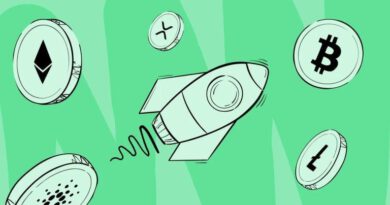Bosch, EU and blockchain companies to build decentralized IoT: IAA Mobility

The engineering and technology company Bosch is at the head of a forthcoming, blockchain-based digital mobility project with backing from the German government, which was demoed live at IAA Mobility 2023 in Munich, Germany.
At the event, Bosch, alongside its collaborators MOBIX and the Peaq blockchain, revealed a peer-to-peer parking and charging scheme utilizing moveIDs on the Peaq ecosystem.
MoveIDs act as self-sovereign identities (SSIs), built on the blockchain permitting autonomous transactions between vehicles and connected infrastructure. The demonstration at IAA Mobility highlighted autonomous transactions between connected devices – in this case, a smart car, charging station, and signal for parking.

Cointelegraph was on the ground in Munich and spoke with Peter Busch, the project lead for moveID and product owner for Distributed Ledger Technologies (Mobility) at Bosch, along with Leonard Dorlöchter, co-founder of Peaq, to understand better how blockchain is helping push forward the future of mobility.
When asked why mobility was the right sector to begin implementing SSI on a large scale, Dorlöchter pointed out that “with mobility especially, there’s a lot of fragmentation.”
When it comes to mobility, the goal for users is to move from one point to the other point. This is done via public transport, micro-mobility scooters, car sharing or personal cars, which need parking spots and charging.
“There are many players involved and always requiring sign-ups with new accounts, new cards, etc.. If this is happening on the blockchain, an open ecosystem, then everyone can have a seamless experience and also find the best services, best parking and charging spots.”

Related: AI and blockchain will ‘reshape sectors’ and create new markets from scratch — Moody’s
According to Busch, decentralized identities of items on open blockchain networks are the “most promising technology” because:
“Decentralized identity allows you to authenticate and identify devices without having the intermediate or another hyperscan in the background.”
“This is the ultimate data sovereignty because the user owns their own data and keeps it and controls it,” he said. “In use cases of charging, you can see only the user and the charging pole in the car make that business – no other party around it.”
Busch said one of the main goals and motivations of the project is to standardize the technological integration with other automotive players in Germany and across Europe.
He also commented that the mobility sector is a great example to big players in the industry and others how Web3 and decentralization can help with data and privacy compliance and European GDPR.
“The EU government is planning to demand that every person in the EU in the future has a decentralized ID.”
“What we are developing is accessible for anyone who can download it. It will be available to all the citizens and all the businesses who would like to use it,” he said.
All of this is part of a larger European Union-funded initiative called Gaia-X, that intends to create a federated, secure data infrastructure for European digital sovereignty and lay the foundations for future smart cities.
Therefore, Busch stressed the importance of “designing systems that people can use easily.“
“Any citizen in maybe like five to eight years will have this automatically and won’t have to think about it because, as you have your personal ID as a card in your wallet today, it will be digitally or electronically somewhere.”
Related: Bosch partners with AI firm for $100M fund to empower Web3 development
According to the Peaq co-founder, a smart city of the future as envisioned by these projects will be a web of “interconnected things” that need to have an identity and an open system.
“If we look into the future and think about smart cities, they wouldn’t work and function if they were built on a Web2 platform as we know them today.”
“Things become alive by having an identity – it’s their passport,” he said. In the case of the example seen at IAA Mobility, this is smart cars, charging stations and traffic lights.“Once they have that identity, users can find and identify with them. Then you can really create a smart city.”
“The Internet of Things (IoT) turns into the Economy of Things (EoT) because all of those things have some economic value and that’s the future. The future of AI automation will be economic activity and machines will do what’s necessary to support society.”
Creating an IoT, and therefore an EoT is similar to nation-building in the digital space. Dorlöchter concluded by saying that in order for any of this to happen these systems need to be “open and decentralized systems.”
Most importantly they need to have an interoperability component that makes it so “everyone can participate in the earnings.”
Magazine: Blockchain games aren’t really decentralized… but that’s about to change




